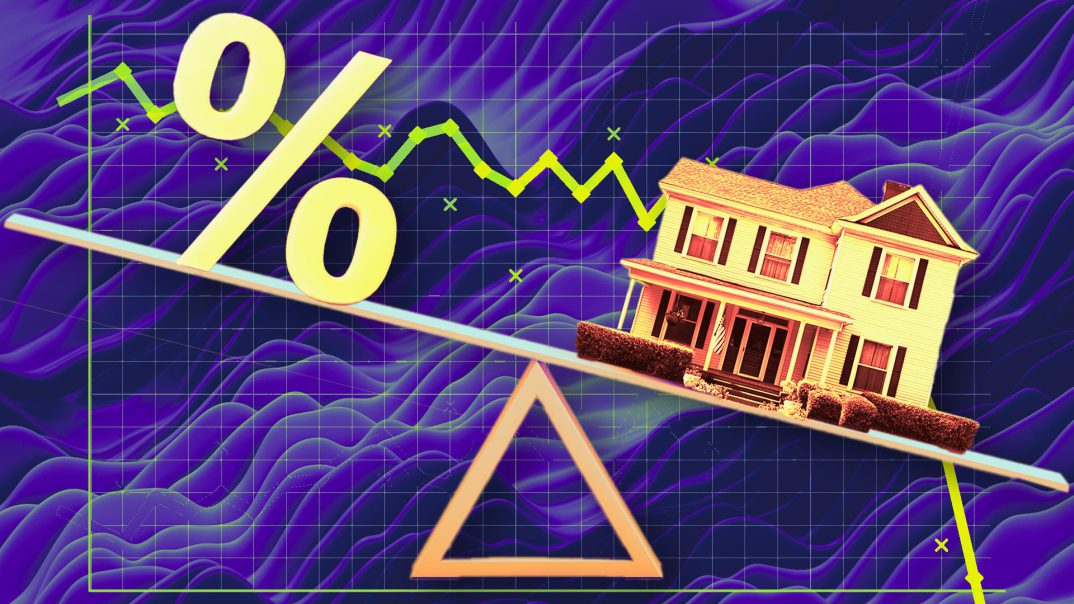The battle against inflation is a long haul. But this week’s data proves there’s been some progress.
The Consumer Price Index, a measure of the cost of food, housing, gas, utilities and other goods, shows prices increasing by 3% year over year. That’s slightly lower than what markets and experts predicted. Core CPI, which excludes volatile food and energy costs, rose by 3.3%, less than the 3.4% figure economists had expected.
This week’s CPI report impacts when the Federal Reserve begins cutting interest rates, which will also have a bearing on the housing market. Mortgage rates — the percentage of interest charged on a home loan — should inch down once the Fed starts lowering the cost of borrowing.
While Thursday’s data won’t likely prompt a rate cut from the Fed at its next policy meeting in late July, it should help mortgage rates become more affordable down the road.
“There is already a growing case for a September rate cut,” said Keith Gumbinger, vice president of mortgage site, HSH.com. “Inflation only needs to show a step or two in the right direction between now and then to give the Fed the confidence it is seeking to begin a rate-cutting cycle.”
Read more: Interest Rate Cuts Might Come Before Inflation Hits 2%
How will today’s inflation data affect mortgage rates?
Despite signs that the economy is gradually cooling, stubborn inflation has kept average mortgage rates above 7% for most of 2024. It’s also changed the Fed’s timeline for lowering interest rates after raising them several times since 2022.
At the start of the year, experts anticipated the potential for three rate cuts starting in the early summer. During its last policy meeting in June, the Fed voted to keep its baseline interest rate unchanged. The central bank also adjusted its outlook for rate cuts to just one in 2024.
Though mortgage rates aren’t directly controlled by the Fed, they fluctuate based on monetary policy, expectations for the economy and the labor market.
For example, higher unemployment levels would indicate a slowing economy and give the central bank the confidence it needs to lower interest rates in September, according to Logan Mohtashami, lead analyst at HousingWire.
As inflation continues to improve, with the economy no longer overheated, mortgage rates should float lower.
Where will mortgage rates end up in 2024?
Financial experts are closely watching economic data — both inflation and labor reports — to anticipate the timing of the Fed’s first cut. If there continues to be uncertainty about where the economy is headed in the coming months, that could increase mortgage rate volatility.
The Fed doesn’t necessarily need to implement interest rate cuts for mortgage rates to decrease. If it merely signals that it’s prepared to lower borrowing costs, that will trigger a decrease in bond yields on the 10-year Treasury (a key benchmark for the average 30-year fixed mortgage rate) and rates on home loans.
“If all goes well, we may end the year with the average rate on a 30-year, fixed mortgage closer to 6% than 7%,” said Jacob Channel, senior economist at LendingTree. But, he warned, that’s far from guaranteed.
Lower rates would give a needed boost to the housing market, which has seen diminishing home sales, even during the spring homebuying season.
“As time progresses and we see rates fall, we should see more activity from both buyers and sellers, but the market probably won’t become particularly active again anytime in the immediate future,” said Channel.
How can homebuyers find lower mortgage rates now?
The current interest-rate environment, with the average 30-year fixed mortgage rate around 7%, is intimidating for prospective homebuyers.
While many factors in the housing market are out of your immediate control, the interest rate you qualify for depends on more specific factors.
Instead of trying to time the market, experts recommend focusing on things like improving your credit score, saving for a bigger down payment and comparison shopping among different mortgage lenders for a better deal.
Read more: 6 Tips to Snag a 6% Mortgage in a 7% Market
Recommended Articles
Why the Federal Reserve Affects Mortgage Rates
Why the Federal Reserve Affects Mortgage Rates
Home Sales Are Slow. Does This Mean Housing Prices Will Go Down?
Home Sales Are Slow. Does This Mean Housing Prices Will Go Down?
Climate Change Is Making Homeownership More Expensive. Here’s How to Weather the Storm
Climate Change Is Making Homeownership More Expensive. Here’s How to Weather the Storm
Get Rid of Your Mortgage in 5 Years? This Couple Shares How
Get Rid of Your Mortgage in 5 Years? This Couple Shares How
I Almost Made a $14,000 Homebuying Mistake. What I Learned About Mortgage Points and the Fine Print
I Almost Made a $14,000 Homebuying Mistake. What I Learned About Mortgage Points and the Fine Print
Don’t Let the Fed Dictate Your Homebuying Plans. Buy a House When You’re Ready





